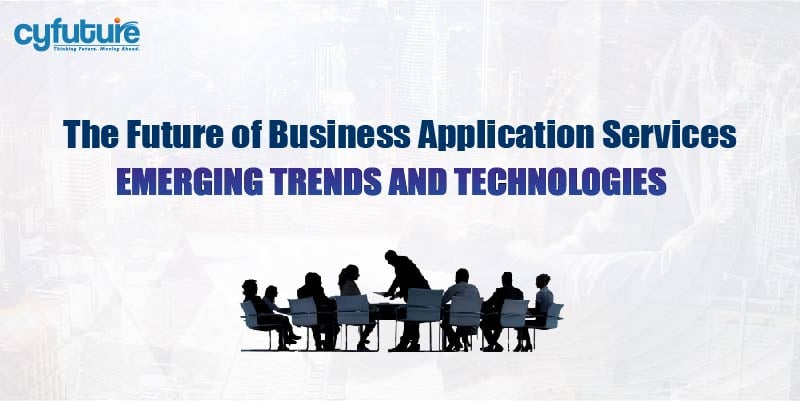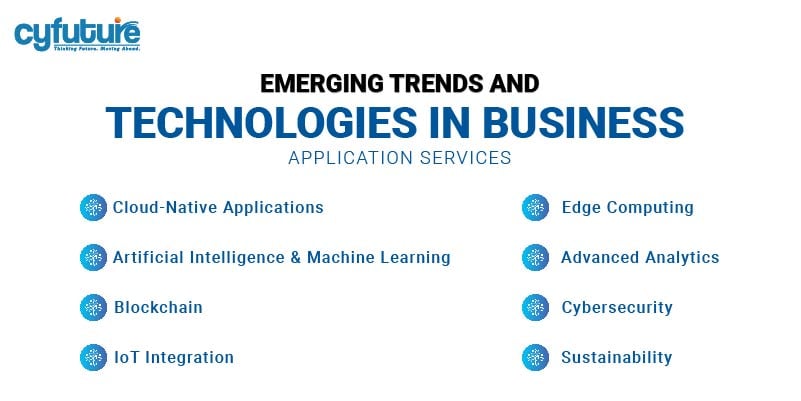-
Get Cloud GPU Server - Register Now!
Toggle navigation

The business application services arena has seen a major shift over the last few years due to rapidly evolving technologies and changing carbonation of business. Instead of a benefit, keeping apprised of the latest enterprise application services has now become almost a need for organizations to continue being innovative and growing.
The market size is expected to surge in the coming years until it reaches a value of 334 billion U.S. dollars by 2025. It shows the now and future dependence on enterprise applications, a critical aspect in propelling organizations towards operational efficiency, customer delight enhancement, and scale.
This change in mindset reflects the increased significance of enterprise application developers in driving future-proof business strategies and gaining an edge over other market compilers. There are some of the factors that will help you in making sure that your enterprise is at pace with all the trends and tools of business application services to survive, in this competitive marketplace.
In this comprehensive blog piece, we shall continue to explore the critical trends that are transforming business application services. Now, let’s delve into the deep knowledge pool!
This, of course, is changing with every march towards the digital transformation of each business function. Moving into this new paradigm, Business Application Services are no longer just supporting systems; they form the bedrock on which modern enterprises stand. The fusion of cloud computing with artificial intelligence, machine learning, and big data analytics brings in a new ecosystem wherein BAS solutions not only get more powerful but also increasingly intelligent and responsive.

Perhaps the most striking trend in the BAS landscape is the movement to cloud-native applications. Ever-developed and ever-built for the cloud, these applications boast unparalleled scalability, flexibility, and cost-efficiency. As more and more organizations drift their operations onto the cloud, demand from buyers for cloud-native Business Application Services will continue to be accelerated. These services let organizations harness the full power of the cloud: from real-time data processing and frictionless integration with other cloud services to extended security.
Moreover, by definition, cloud-native BAS solutions are designed to continuously improve. With the ability to deploy updates and additional features without operational disruption, the applications ensure that companies remain competitive in a constantly changing digital world. In this respect, the adoption of cloud-native Business Application Services will increasingly be the rule rather than the exception as more enterprises march towards embracing a cloud-first approach.
Artificial Intelligence and Machine Learning are changing the dimensions of Business Application Services by integrating intelligent automation into business processes. AI-driven BAS solutions can analyze huge volumes of data in real time and extract actionable insights that drive decision-making and operational efficiency. On the other hand, machine learning algorithms learn and adapt over time as they improve the performance of business applications.
In the future, AI and ML will permeate every aspect of Business Application Services-from CRM and ERP to supply chain and human resources. These will enable the enterprise to automate routine tasks at an unprecedented scale, predict market trends, optimize supply chains, and make each customer experience personal. This, in turn, truly enables the enterprise to become more agile and responsive to its data.
Blockchain technology, being decentralized and immutable, would have the potential to disclose, enhance transparency, security, and thereby trust in Business Application Services. It can provide tamper-proof records of transactions within the Blockchain so that all parties will have one verifiable source of truth for those transactions.
This will be furthered in the future when blockchain will be integrated into BAS solutions that drive supply chain transparency, advanced levels of data security, and efficiency in compliance processes. Blockchain aids, for example, in supply chain management by tracking where goods originate from so products are sourced in responsible and sustainable manners. The blockchain can automate and secure complicated financial transactions, therefore making fraud low in ratio and ensuring all regulations are met, in the financial services vertical.
In this respect, the Internet of Things is closing the gap between the physical and digital worlds while opening new perspectives for Business Application Services. While there is integration of IoT devices with solutions provided by BAS, any organization may get real-time data from the physical world based on monitoring and controlling assets, optimization of operations, and making decisions in an advanced form.
IoT-powered BAS allows solutions for the industry to monitor equipment performance, predict maintenance, and optimize production processes. IoT technology can be leveraged to keep track of inventory levels in the retail industry, monitor customer behaviors, and make personalized shopping experiences. As the IoT continues to gain momentum, integration of IoT with Business Application Services will become vital for organizations to unlock new levels of efficiency and innovation.
The use of edge computing, wherein data processing is done closer to its generation rather than in some central data center, is fast becoming one of the key trends within the BAS landscape. By bringing computation and data storage closer to the edge of the network, edge computing ensures lower latency, improved response time, and higher performance for business applications.
The next generation of Business Application Services will be enabled, above all, by edge computing in industries where immediate processing is critical, such as manufacturing, healthcare, and logistics. A very good example would be smart factories that use edge computing to process data coming from IoT sensors in real-time and perform predictive maintenance or optimally set up production processes. Edge computing in the healthcare sector can enable innovative applications, such as remote monitoring and telemedicine, which improve patient outcomes while reducing healthcare costs.
Data is the new oil, and advanced analytics is the key that opens up its full potential. Advanced analytics in the future will play a more vital role in driving actionable insights from influxes of information in Business Application Services. Through applying techniques such as predictive analytics, prescriptive analytics, and real-time analytics, an organization attains insightful decisions, optimizes operations, and ascertains business growth.
For example, advanced analytics can be used in the retail industry to gain insight into customer behavior and preferences to enable retailers to offer personalized marketing campaigns and improve customer retention. Advanced analytics can also be applied within the financial services industry for fraud detection in transactions, credit risk assessment, and portfolio investment optimization. As more data is created and captured by businesses, the role of advanced analytics will be even more crucial to Business Application Services.
The world is going digital, and the more businesses rely on digital solutions, the more they feel concerned about cybersecurity. This concern will, therefore, be the number one priority for organizations of all sizes, as it gives protection to sensitive data, compliance with regulatory requirements, and protection against hacking business operations in the future.
Emerging technologies such as AI-driven security, zero-trust architecture, and blockchain will play a key role in enhancing this area of security for Business Application Services. The solution for AI-driven security allows for real-time threat detection and response, while zero-trust architectures ensure that only authorized users have access to critical business applications. As already mentioned, blockchain can give additional layers of security, recording immutable records of transactions and ensuring data integrity.
This is going to get worse because cyber threats evolve continuously, and this demands investment in advanced cybersecurity solutions in the future to be able to protect Business Application Services and regain clients’ confidence.
Sustainability is no longer a buzzword but rather an element of business imperative. With a growing priority on ESG issues, organizations will shape the future of Business Application Services concerning developing solutions that are sustainable and eco-friendly.
Cloud-based BAS solutions already ensure adding value to sustainability by reducing physical infrastructure and minimizing energy consumption. In the future, there will be more green practices adopted by the BAS providers, such as powering data centers with renewable energy and designing energy-efficient software. BAS solutions will also go ahead and continue to support organizations in tracking and reporting sustainability initiatives to ensure ESG standards are achieved while improving overall environmental performance.
The future of Business Application Services will be bright, driven by emerging trends and technologies that are reshaping the way organizations conduct business. While businesses remain grappling with the intricacies that define the digital era, their success will increasingly depend upon BAS. Cloud-native applications, AI and ML, low-code/no-code platforms, hyper-automation, blockchain, IoT, edge computing, advanced analytics, cybersecurity, and sustainability are all enablers of new levels of efficiency, innovation, and competitiveness that await organizational embracing.
Looking ahead, it becomes clear that Business Application Services will drive the next wave of digital transformation. In this respect, BAS is instrumental in enabling organizations to survive and thrive within a more complex and networked world. The challenge will be for businesses to remain ahead of these trends and technologies and ensure their BAS solutions not only meet but can drive forward long-term growth and success.